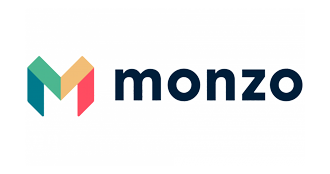Are you looking for the easiest-to-open business bank account that suits your needs, but don’t know where to start? Whether you’re just starting out as an entrepreneur in the UK or are expanding your business, it’s important to find the best bank account that won’t take away from what matters most — running and growing your company.
Let us help guide you through some of the quickest-to-open business bank accounts (and e-money accounts) available in the UK.
Top 10 featured business accounts – With quick and easy setup
| Name | Lowest monthly fee | Offers current account? | Offers savings account? | Overdraft available? |
|---|---|---|---|---|
| Tide | Free | Yes | No | No |
| ANNA Money | £14.90 | Yes | No | No |
| Card One Money | £12.50 | Yes | No | No |
| CountingUp | Free | Yes | No | No |
| Co-Operative Bank | £7 | Yes | Yes | Yes |
| HSBC | £6.50 | Yes | Yes | Yes |
| Metro Bank | £6 | Yes | Yes | Yes |
| Mettle | Free | Yes | No | No |
| Monzo | Ask | Yes | Yes | No |
| Virgin Money | £6.50 | No | Yes | No |
Co-operative Bank

The Co-operative Bank offers ethical business banking with 24/7 online account management and overdraft options tailored to SMEs. The Co-operative Bank offers ethical business banking with24/7
The Co-operative Bank offers ethical business banking with24/7
The Co-operative Bank provides a Business Current Account known for its ethical banking principles.
Fees and charges
They offer 18 months of free day-to-day banking for new businesses, after which fees apply based on account usage.
Standard charges include 30p per cheque or direct debit and 23p per £100 for cash deposits.
Business account features
The account also features online banking and a contactless Visa debit card. Interest is not typically paid on current account balances.
Eligibility
To open an account, businesses must operate in the UK and meet the Co-operative Bank’s ethical policy criteria.
HSBC

HSBC provides comprehensive business banking solutions, including multi-currency accounts, international trade support, and business loans.
HSBC offers a range of business bank accounts, including the Business Current Account and the Electronic Banking Account.
Fees and charges
The Business Current Account has a monthly account fee of £6.50, with additional charges for transactions: 23p per cheque, 23p per £100 cash deposited or withdrawn, and 35p for electronic payments.
Business account features
The Electronic Banking Account is designed for businesses that mainly transact online, with lower electronic transaction fees.
HSBC also offers business savings accounts with variable interest rates depending on the account balance.
Eligibility
Eligibility criteria include proof of business operation in the UK and standard identification verification.
Metro Bank

Metro Bank offers flexible business banking with instant account opening, extended branch hours, and no monthly fees for smaller accounts.
Metro Bank provides a Business Current Account aimed at businesses of all sizes.
Business account features
The account features include online banking, mobile banking, and in-branch services.
Fees and charges
They offer a tariff-free banking offer for businesses with lower transaction volumes, and for larger businesses, there’s a tariff that includes a £5 monthly fee, 30p per cheque, and 30p for electronic payments. Cash handling is charged at 0.5% of the value.
Metro Bank also offers Business Savings Accounts, with interest rates depending on the account type and balance.
Eligibility
Eligibility criteria include having a business operation in the UK and undergoing standard identification verification.
Mettle

Mettle provides a free digital business account for sole traders and small businesses, with tools for invoicing and expense tracking.
Mettle, powered by NatWest, offers a free mobile business account targeted at small businesses and freelancers.
Business account features
Mettle accounts are managed entirely via a mobile app, providing a digital-first banking experience.
Fees and charges
Transactions, including electronic payments and ATM withdrawals, are free of charge.
There are no monthly fees, and the account includes features such as invoicing, expense management, and cash flow forecasting.
Eligibility
To be eligible, businesses must be UK-based sole traders or limited companies, and the application process is conducted online, requiring standard identification and business details.
Monzo

Monzo offers business accounts with budgeting tools, automated tax pots, and seamless integrations with popular accounting software.
Monzo offers a Business Current Account with two tiers: Lite, which is free, and Pro, which costs £5 per month.
Business account features
The Lite version includes basic banking features, while the Pro version offers additional tools like integrated accounting and multi-user access.
Both versions provide features such as instant notifications, categorised spending, and depositing cash through PayPoints (charged at £1 per deposit).
Eligibility
Monzo’s business account is available to sole traders and limited companies based in the UK, and the application process includes identity verification and business details.
Virgin Money

Virgin Money delivers business accounts with free digital banking, cashback rewards, and support for growing businesses.
Virgin Money provides a Business Current Account with features tailored for small and medium-sized enterprises.
Fees and charges
The account offers free everyday banking for a certain period (e.g., 25 months for new businesses), after which standard charges apply.
Transaction fees include 30p per cheque, 30p for direct debits, and a cash handling fee of 0.65% of the value.
They also offer business savings accounts with variable interest rates.
Eligibility
Eligibility for opening an account includes UK residency and proof of business operation, along with standard business documentation.
| Important |
|---|
| For the most accurate and up-to-date information, it’s recommended to directly contact these financial institutions or visit their official websites. |
How to open a business bank account?
Opening a business bank account is one of the first steps to starting a successful business. Having a dedicated bank account will help you manage your finances and keep track of where your money is going. It’s important to shop around for the right banking solution that best suits your specific needs.
Once you have decided on your banking provider, follow these steps to open a business bank account:
How to open a business bank account
- Choosing the right bank and account type
Research and compare various banks and the types of business accounts they offer. Consider factors like fees, overdraft facilities, interest rates, online banking options, and additional services that could benefit your business, such as a business savings account or a business credit card.
- Preparing the necessary documents
You will need several documents to open a business bank account in the UK. These typically include:
• Proof of identity (e.g., passport, driving licence)
• Proof of address (e.g., recent utility bill or council tax bill)
• Business details (e.g., business name, address, contact information)
• Companies House registration documents (for limited companies)
• Partnership agreement (for partnerships)
• Business plan (may be required by some banks)
• Estimated annual turnover - Completing the application
Most banks offer the option to apply online, by phone, or in person. Choose the method that suits you best. Fill out the application form with the required information, ensuring accuracy to avoid any delays.
- Verification process
The bank will verify your identity and assess your application. This process includes checking your credit history and ensuring your business meets their criteria. Be prepared for the bank to request additional information or documentation.
- Account approval and setup
Once your application is approved, the bank will set up your account. You will receive your account number, sort code, and any necessary online banking details. Some banks may also provide cheque books and debit cards.
- Understanding and managing your account
Familiarise yourself with the terms and conditions of your account, including any fees, charges, and the services included. Set up any required online banking and ensure you know how to use it effectively for your business needs.
Once you have opened your business bank account, make sure to monitor your account regularly. Ensure that all transactions are accurate and familiarise yourself with the banking services offered by your provider so you can make the most of them.
Remember to also keep all records related to business banking in a secure place for future reference.
FAQ for business bank accounts
A business bank account is a financial tool designed to help businesses manage their finances. It is distinct from an individual’s personal banking account and allows for greater flexibility when dealing with larger sums of money, such as those generated through sales or investments.
Business bank accounts also offer access to additional services tailored to the needs of a particular organisation, including loans and lines of credit, overdraft protection, and online accounting software.
By utilising a business bank account to manage their finances, businesses can ensure that they are in compliance with the legal requirements associated with running a business. Additionally, it can help businesses better track their income and expenses and make more informed decisions about the direction of their company.
Business bank accounts offer a number of advantages for businesses, including:
Access to financial services – Business bank accounts offer access to a range of financial services that are tailored specifically for business activities. This includes access to overdrafts and credit, as well as payment solutions such as online banking, payment cards and more.
Improved cash flow – By separating personal and business income and expenses, businesses can more easily keep track of their financial activity. This helps with budgeting as well as understanding where money is coming from and going to in the business.
Easier tax preparation – With all business transactions recorded in one place, it’s much easier to prepare accurate and timely tax returns.
Enhanced credibility – Having a business bank account creates the perception that your business is legitimate, which can help when dealing with customers, suppliers and other stakeholders.
Higher savings interest rates – Businesses may be able to access higher interest rates on deposits than those offered on personal accounts.
To open a business bank account in the UK, you’ll need several key documents and pieces of information.
Firstly, provide proof of your identity and address, typically through a passport or driving licence and a recent utility bill or council tax bill. You’ll also need to present detailed information about your business, including its name, address, and contact details.
For limited companies, registration documents from Companies House are required, while partnerships should provide their partnership agreement.
Some banks may ask for a business plan, especially for new businesses, and information about your estimated annual turnover.
It’s important to prepare these documents in advance to ensure a smooth and efficient account opening process.
The best business bank account will depend on your individual needs. Before you choose a provider, take the time to compare different banking services and products offered by various banks.
Consider factors such as fees, interest rates, customer service, and online banking features.
Also consider your legal status, such as sole trader, freelancer or limited company.
Additionally, make sure to assess the terms and conditions of each bank account to ensure that it meets your specific needs.
Closing a business bank account is not as straightforward as opening one. Before you close an account, ensure that all outstanding payments have been made and that no additional deposits are due.
Additionally, it is important to keep in mind that closing your business bank account may affect your credit score and other relationships with the banking institution. To close a business bank account, follow the steps below:
1. Contact your bank and inform them that you would like to close the account.
2. Provide all necessary documentation such as a letter of request, proof of identity, and details about the account closure.
3. Sign any required paperwork or submit documents online if applicable.
The amount of time it takes to open a business bank account varies from one institution to another. Generally, the process can take anywhere from a few days to several weeks depending on the complexity of your application and the documents you need to provide. For example, if you are applying for an online banking solution, approval may be granted within a few days.

